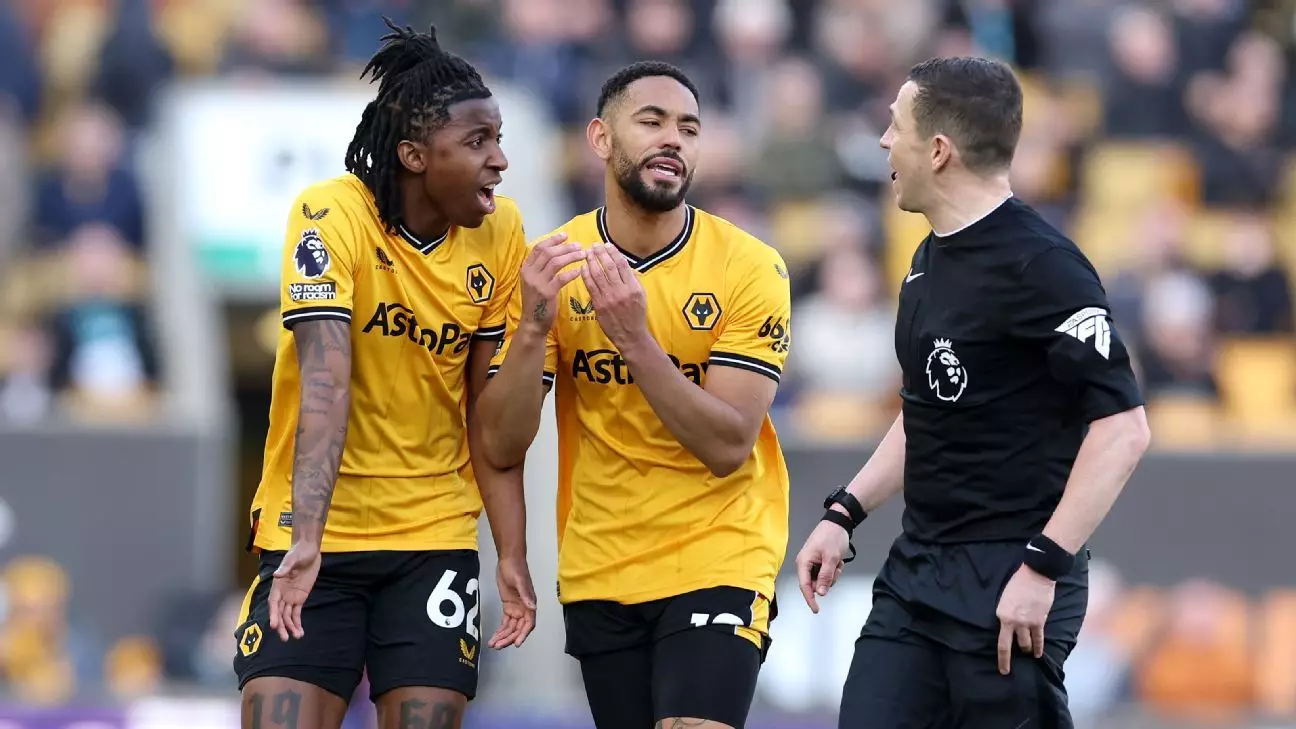Wolves faced a devastating blow after a stoppage-time equalizer against West Ham United was disallowed following a VAR check. Manager Gary O’Neil expressed his outrage, labeling the decision as one of the worst he had ever witnessed. The controversy arose when Maximilian Kilman’s header from a corner was ruled out due to an offside decision against Tawanda Chirewa, who was positioned in front of West Ham goalkeeper Łukasz Fabianski. Despite Kilman’s header going into the opposite corner, Wolves argued that Fabianski had no chance of saving it regardless.
Outrage Among Wolves
The 2-1 defeat left Wolves in 11th place in the standings, while West Ham moved level on points with Manchester United. O’Neil, along with David Moyes and Fabianski, vehemently criticized the VAR decision, deeming it scandalous, terrible, and horrendous. O’Neil emphasized that the decision was baffling as Chirewa did not obstruct Fabianski’s movement or vision, making it a clear misjudgment by the officials.
The disappointment was compounded for Wolves as they allowed West Ham to claw back into the game in the second half, squandering their lead established through a Pablo Sarabia penalty. A penalty converted by Lucas Paquetá and a sensational corner kick goal by James Ward Prowse turned the tide in favor of the visitors. Wolves found themselves on the wrong end of luck once again when their potential equalizer was denied in a heart-wrenching manner after a contentious conclusion to the match.
Questioning Refereeing Standards
O’Neil continued to express his bafflement, pointing out that even with all the technology and replays available, the VAR decision was still inaccurate. The frustration was palpable as he dissected the events leading to Wolves’ defeat, from letting West Ham back into the game to conceding a goal of questionable nature, culminating in the VAR controversy. The lack of consistency and clarity in officiating left Wolves feeling hard done by and questioning the standards upheld in the game.
While VAR was introduced to minimize errors and enhance the accuracy of officiating, instances like the one involving Wolves and West Ham underscore the flaws and subjectivity that still persist in the system. The fallout from the controversial decision reverberated throughout the footballing world, reigniting debates around the efficacy and reliability of VAR. The emotional and financial stakes involved in professional football make it imperative for such decisions to be made with utmost precision and accountability.
The uproar over the VAR decision that deprived Wolves of a potentially crucial point against West Ham serves as a reminder of the contentious nature of technology-assisted officiating in football. The fallout from such incidents extends beyond the immediate result of a match, resonating with fans, players, and coaches alike. As the debate surrounding VAR continues to evolve, the need for transparency, consistency, and improved decision-making processes becomes increasingly apparent to ensure the integrity and fairness of the sport.

Leave a Reply